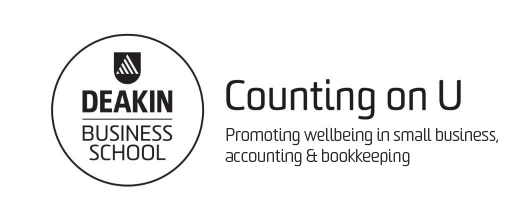Counting on U Newsletter #2 02/12/2022
Build & leverage trust in client relationships with the right skills and training
Research shows that client trust in business relationships is critical for long term relationship quality. How do you build trust as a business adviser? And how do you leverage client trust to have the difficult conversations?
At the heart of quality relationships is trust. By developing trust with their small business clients, business advisers (BAs) can form deeper and more impactful relationships and provide improved business advice.
It is this idea of trust that underlies Counting on U’s Relationship Building Training (RBT) module. RBT is designed to assist business advisers to develop a better understanding of the business and personal needs of their clients and use this understanding to better support their client’s wellbeing.
“From a workplace mental health perspective, a strength of RBT is the integration of prevention and treatment-oriented strategies,” says Andrew Noblet, professor in workplace wellbeing at Deakin Business School and co-founder of the Counting on U (CoU) program.
“In terms of prevention, a key aim of the RBT module is to equip advisers with the skills and knowledge to better understand the needs of the business and business owner, and to use this information to build trust. Clients need to feel comfortable disclosing their full financial situation and hence building trust is a critical step towards preventing and reducing financial pressure and distress.”
“In relation to treatment, the second key aim of RBT is to create an environment that is more conducive to applying Mental Health First Aid (MHFA), especially in terms of recognising the early signs of mental health conditions and having the confidence to encourage help-seeking.”
Due to long working hours, high levels of responsibility, isolation, and financial pressures, SME owners are vulnerable to burnout, depression, and anxiety. But many wouldn’t normally consider seeking help from a counsellor or psychologist. Instead, they may find themselves speaking with a business adviser (BA) about the challenges they are facing. For this reason, trusted BAs are often in a unique position of being able to talk with their clients about their wellbeing.
George Tanewski, professor in accounting at Deakin Business School and co-founder of CoU notes: “Even after a client has agreed to take up business advice from a particular business adviser, clients will only open-up and disclose sensitive and confidential information when a deeper and more trusting professional relationship has been established.”
RBT was therefore designed to provide BAs with the skills required to establish stronger and more open relationships with their clients. By building self-awareness, communication, influencing and self-care skills, BAs may be better equipped to have difficult conversations with clients, encourage help-seeking where appropriate and alleviate financial distress.
“Applying these skills to developing more trusting longer-term relationships can result in two critical outcomes for the business advisor,” says Andrew.
“First, developing a deeper understanding of the needs of the business and the financial situation of the firm, can put you in a much better position to identify the source of any financial distress and provide the technical advice and guidance to help alleviate these financial pressures.”
“Second, is that you are then in a much better position to practice MHFA – clients trust their BA and feel more comfortable disclosing personal issues, and advisers feel better equipped to have difficult conversations.”
CoU participant analysis shows that of those who never spoke to clients about their mental health prior to taking part in CoU, nearly half (43%) reported doing so within a month of completing training. 62% of participants surveyed also reported improvements in their relationship with clients following training.
“Since participating in the CoU program, I feel a lot more confident talking to my clients because if they come to me with problems then I’ve got the tools to help them navigate the issues that they are having,” says Rachel Mendlik, CoU alum and Client Advisory Specialist at WLF Accounting and Advisory.
“CoU has changed my relationships with clients and colleagues significantly because I’m looking at everything in a new light and listening more deeply to conversations. It’s made me a more empathetic person” says Rachel.
Several other benefits can also arise from learning RBT skills. “Relationships and trust are enabling factors which determine whether business advice is taken up by the client,” notes George.
RBT may translate to clients benefitting from improved business advice, reduced financial distress and strengthened relationship quality with the BA, and the BAs in-turn, benefit from the business value of quality, long-term client relationships. The skills learned during RBT can also be leveraged by the BAs to care for their colleagues, friends, family and most importantly, for themselves.
George says, “As the role of accountants is evolving towards business mentorship, with a greater emphasis placed on strategic guidance and business development, accountants require relationship building and communication skills to help them better understand the business and personal needs of their clients.”
Also looking to the future, Andrew adds, “Combining RBT with MHFA would be effective for most other intermediaries where building closer, more trusting relationships with clients is critical for the effectiveness of the intermediary. These include insurance brokers, legal firms, HR experts, IT specialists. So, there’s certainly room for growing the CoU approach to include other small business intermediaries.”
Interested in Counting on U training?
Develop the confidence to help your clients in financial and emotional distress. You will know what to say and how to say it. You will be able to transfer these skills towards your own self-care whilst also supporting your team and colleagues.
Find out more about the 2023 CoU Program and register for training: The 2023 Program | Counting on U (deakin.edu.au)
